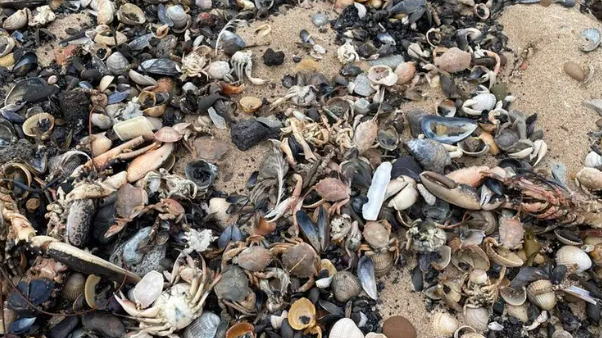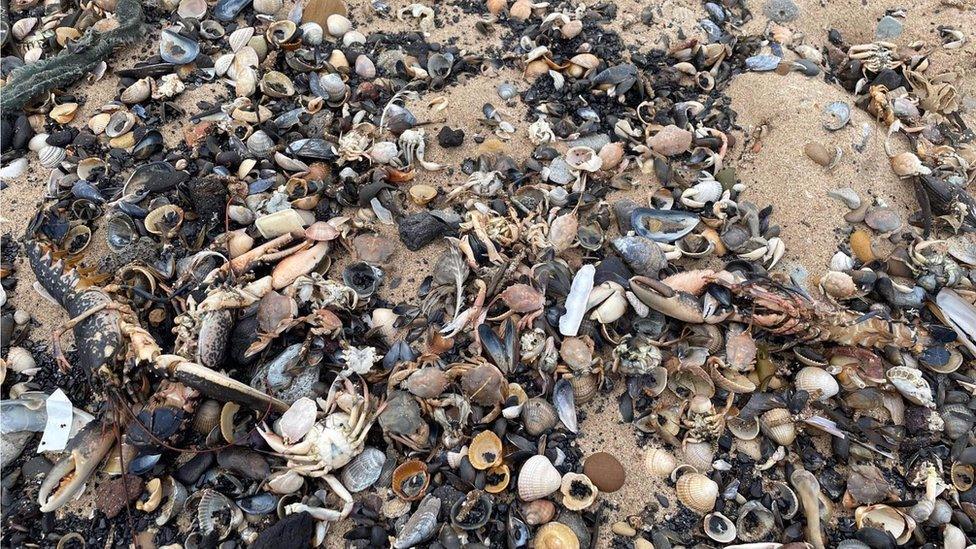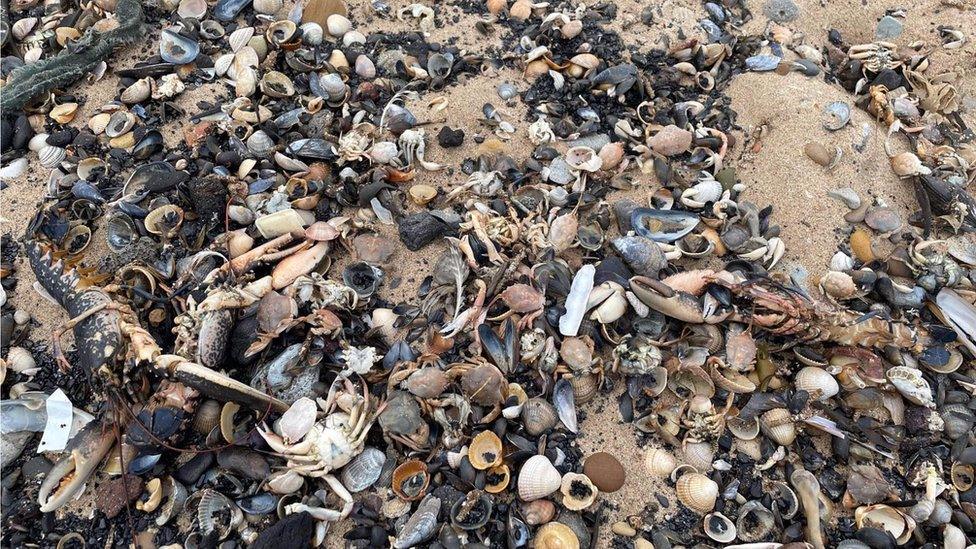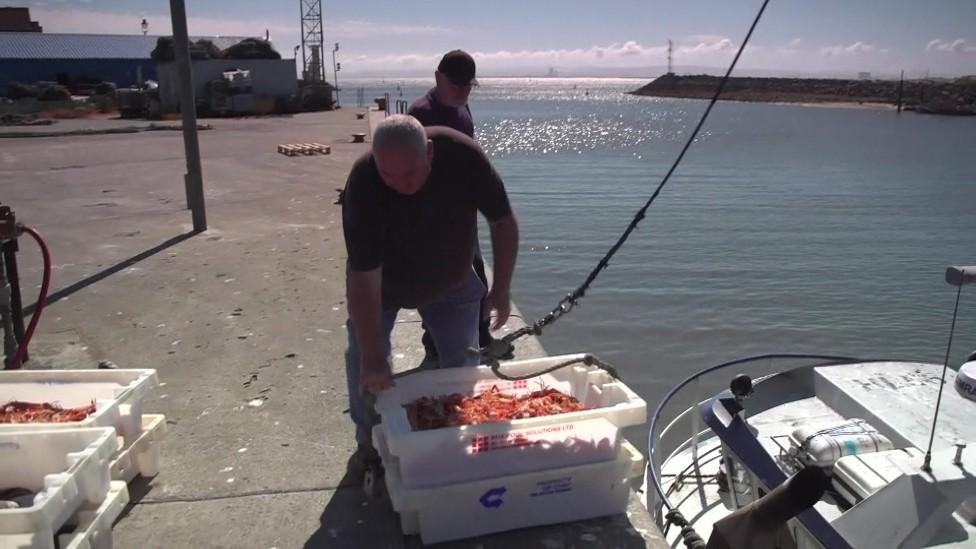Shellfish die-off group to disband

Campaigners suggested dredging of the River Tees was behind the deaths, which a government-commissioned study said was unlikely
- Published
A cross-council group established to investigate the cause of mass-deaths of crustaceans is being disbanded.
In October 2021, thousands of crabs and shellfish began washing up dead along beaches in Teesside and North Yorkshire.
The situation prompted investigations and a long-running political row about the potential cause of the die-off.
According to council papers, the Crustacean Deaths Collaborative Working Group, set up by neighbouring authorities, is working on a final report and will end in "the coming months".
Widespread speculation has surrounded the cause of the shellfish deaths, with some believing the issue was caused by the dredging of the River Tees.
A report commissioned by fishermen suggested the industrial chemical pyridine was responsible, but a government-commissioned study published in 2023 agreed with independent findings that it was unlikely to be behind the deaths.
'Shift of focus'
In response to the crisis, the Crustacean Deaths Collaborative Working Group was created, made up of members from councils in the Tees Valley and North Yorkshire.
It was not intended to be a permanent group and it is "due to end in the coming months due to limited resources", according to papers released ahead of Hartlepool Council's upcoming Audit and Governance Committee meeting.
Reflecting comments made by Hartlepool Labour councillor Rachel Creevy, the papers said: "The shift of focus would now be towards lobbying the government to take this forward."
Redcar and Cleveland Council, the lead authority, acknowledged that the group's "officer resource" is under pressure but said it would continue to operate until its final report is made public and distributed to relevant organisations.
Philip Thomson, group chair and an Independent Group councillor, said protecting the environment and ecology of the maritime area was "of vital importance".
He added: "Following extensive research and consultation, a final report is now being prepared which will detail the findings of the working group and of local authorities and include recommendations arising from the work of the group."
The report will be made available to councils, government, MPs and "all parties participating in the research and consultation", Thomson said.
Follow BBC Tees on X,, external Facebook, external, Nextdoor and Instagram, external. Send your story ideas to northeastandcumbria@bbc.co.uk.
- Published3 November 2023

- Published19 May 2023

- Published3 May 2023
